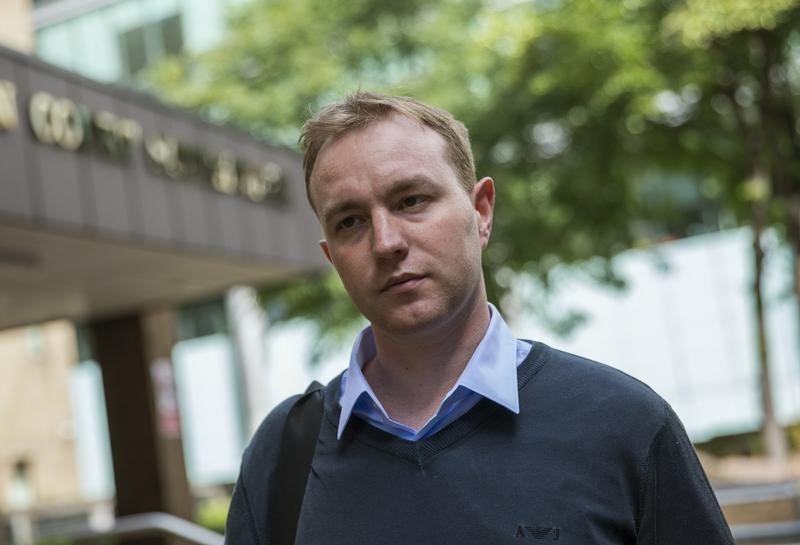By Kirstin Ridley
LONDON (Reuters) - Tom Hayes, the former trader on trial on Libor interest rate rigging charges, told a London court on Wednesday he ignored a 2009 warning to stop trying to influence rates in part because he was pre-occupied with moving jobs.
Prosecutors allege Hayes, a former star trader at UBS and Citigroup (NYSE:C), set up a network of brokers and traders that spanned some of the world's most powerful financial institutions to rig Libor for profit, cheating counterparties.
Hayes has pleaded not guilty to eight counts of conspiracy to defraud between 2006 and 2010, saying he was open about trying to influence rates, that his managers knew what he was doing and that the practice was widespread in the industry.
Libor, a benchmark used to price trillions of dollars of financial products, is an average interest rate calculated from submissions by banks, and so influencing submissions could affect the eventual outcome.
On his second day in the witness box at Southwark Crown Court, Hayes said his UBS boss, Mike Pieri, telephoned him in August 2009 to warn him against sending emails to try to influence UBS's own Libor rate submission.
Hayes, 35, said he was surprised by the request, but interpreted it as meaning: "carry on doing it but don't send any emails".
A UBS spokeswoman said Pieri had no comment on the matter.
Hayes told the court this was the only warning he received at UBS that what he was doing might be wrong, and that he was caught up at the time in the emotional turmoil of leaving the bank, where he had worked for the previous three years in Tokyo.
Though Citigroup had offered Hayes a 2.2 million pound ($3.4 million) signing-on bonus and UBS failed to honour a bonus agreement in 2008, Hayes said he felt loyalty to the Swiss-based bank.
"I found it a very difficult place to leave," he said. "Not, like, literally -- I mean emotionally. I enjoyed working there and I liked my managers, I felt real loyalty to the bank. I didn't really want to go, truth be told."
Hayes' defence team took the court through a series of internal UBS computer chats between traders and Libor rate submitters from 2006-2009, which Hayes said showed rates being agreed by other UBS employees for commercial reasons. Some of those chats pre-dated Hayes' arrival at the bank.
"This is one of the reasons why it's so hard for me to reconcile everything that has happened. It (requesting rates) was just so normal. It was just people doing their jobs," Hayes said
Hayes is the first person to face trial by jury over allegations of conspiring to rig Libor rates, a scandal which has cost banks billions of dollars in fines from regulators.
Conspiracy to defraud can carry a 10 year jail sentence.
Hayes traded in yen-denominated derivatives tied to Libor. Small movements in the rate could affect his profit and loss, although he has also said the effect of Libor rates on his trades was relatively small
